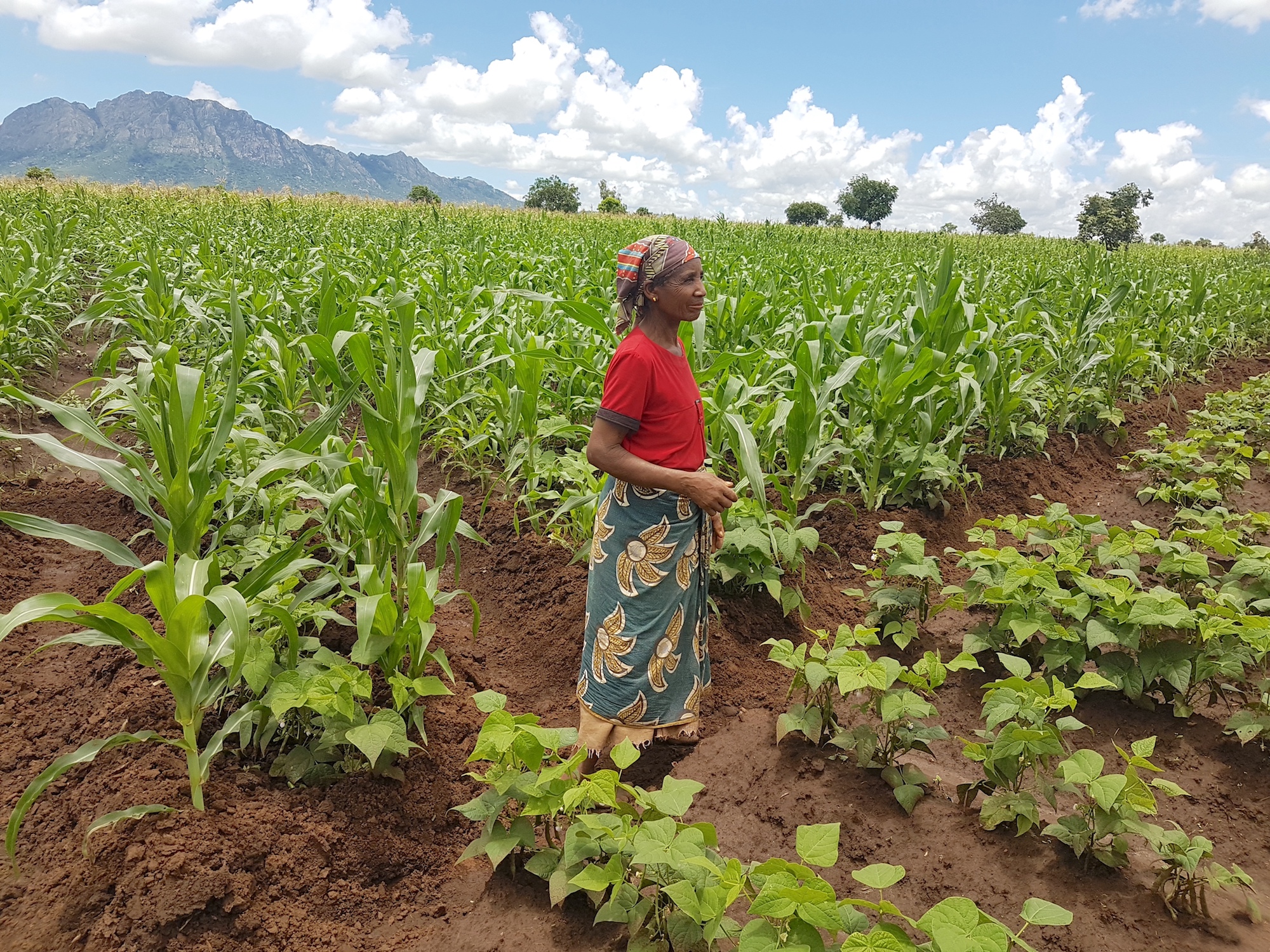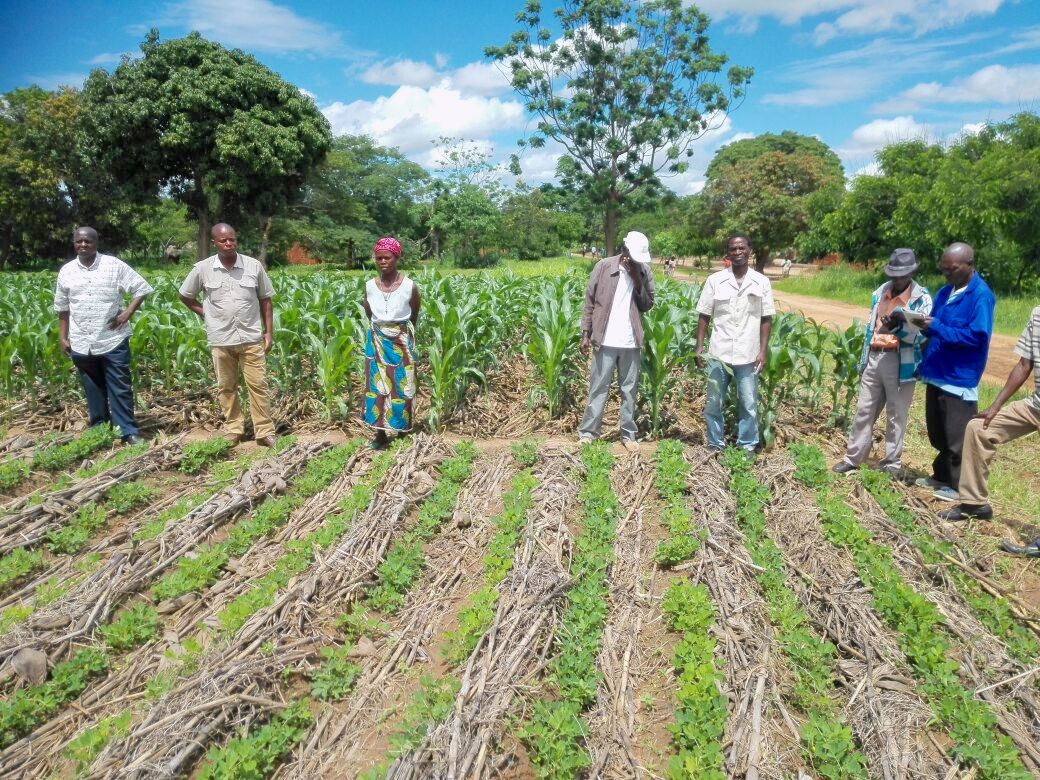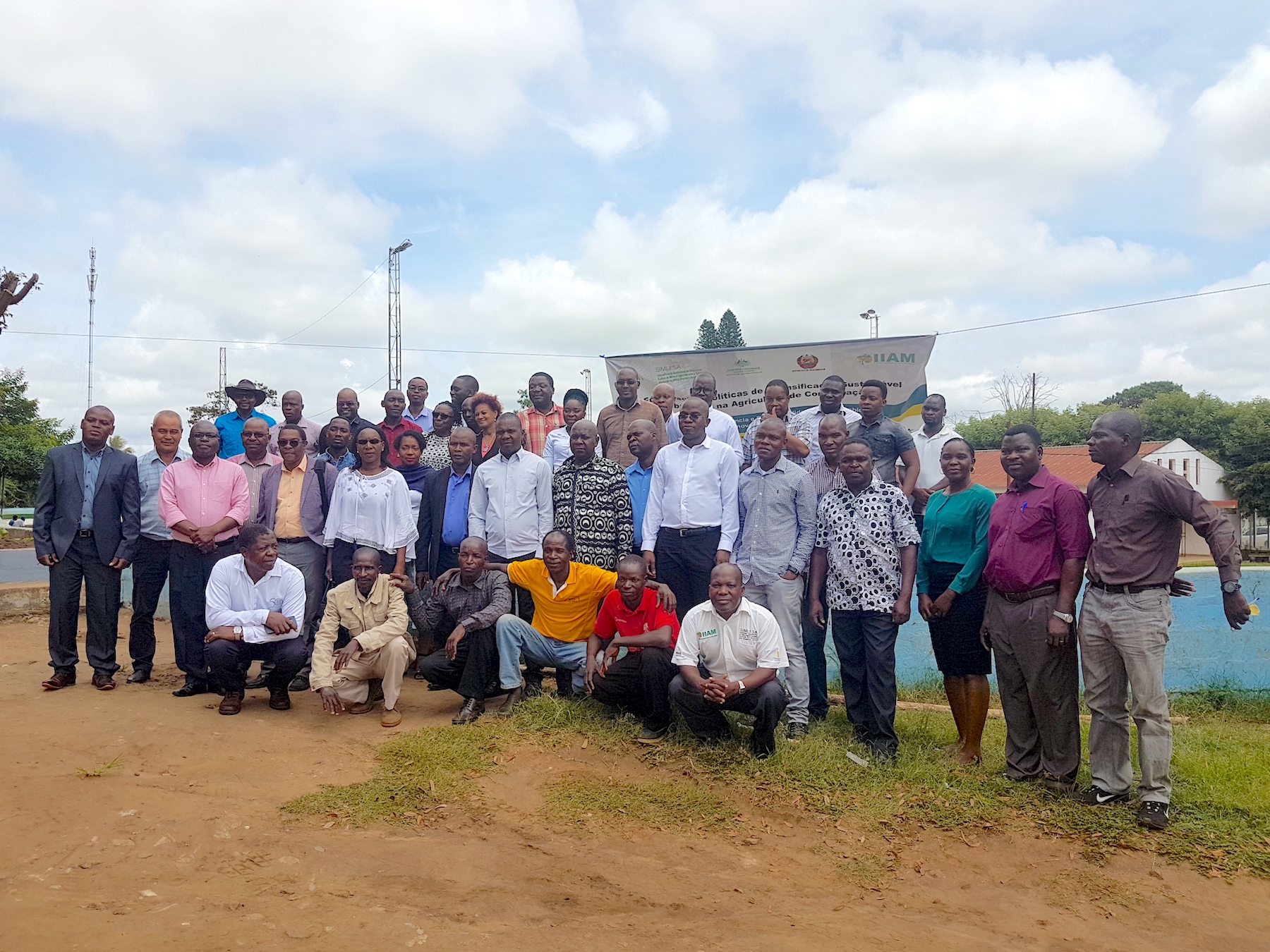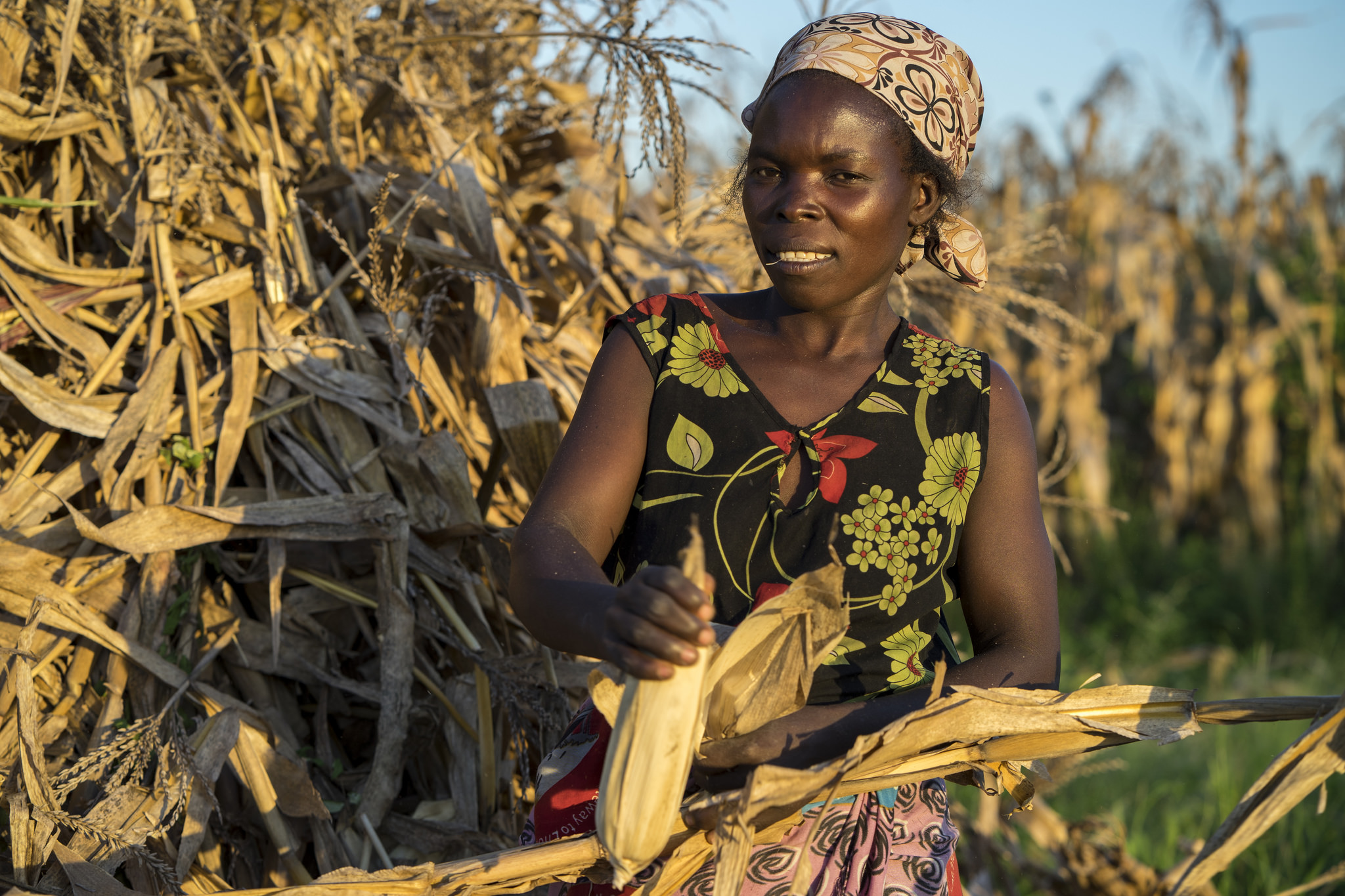
For many small farmers across sub-Saharan Africa, the crop yields their livelihoods depend on are affected by low-quality inputs and severe challenges like climate change, pests and diseases. Unsustainable farming practices like monocropping are impacting soil health and reducing the productivity of their farms.
Sustainable intensification practices based on conservation agriculture entail minimal soil disturbance, recycling crop plant matter to cover and replenish the soil, and diversified cropping patterns. These approaches maintain moisture, reduce erosion and curb nutrient loss. Farmers are encouraged and supported to intercrop maize with nitrogen-fixing legumes — such as beans, peas and groundnuts — which enrich the soil with key nutrients. Farmers are equally advised to cultivate their crops along with trees, instead of deforesting the land to create room for farming.
These practices result in higher incomes for farmers and better food and nutrition for families. Adopting conservation agriculture also improves farmers’ climate resilience. Combined with good agronomic practices, conservation agriculture for sustainable intensification can increase yields up to 38 percent.
Since 2010, the Sustainable Intensification of Maize and Legume Cropping Systems for Food Security in Eastern and Southern Africa (SIMLESA) project has promoted effective ways to produce more food while protecting the environment across Eastern and Southern Africa. In particular, the SIMLESA project aims at sustainably increasing the productivity of maize and legume systems in the region.
The SIMLESA project demonstrated the advantages of deploying low-carbon and low-cost mechanization adapted to smallholder farming: it addresses labor shortages at critical times like planting or weeding, boosting farmers’ productivity and yields. The SIMLESA project introduced mechanization in different phases: first improved manual tools like the jab planter, later draft power machinery innovations such as rippers, and finally motorized mechanization in the form of small four-wheel tractors.

From proof of concept to nation-wide adoption
In Mozambique, conservation agriculture-based sustainable intensification practices have significantly expanded: from 36 farmers in six villages in four districts in 2010, to over 190,000 farmers in more than 100 villages in nine districts by the end of 2018. This remarkable result was achieved in collaboration with partners such as the Mozambican Agricultural Research Institute (IIAM), extension workers, communities and private companies.
“Smallholder agriculture mechanization reduced the amount of labor required for one hectare of land preparation, from 31 days to just 2 hours. This enabled timely farming activities and a maize yield increase of about 170 kg per hectare, reflecting an extra 3-4 months of household food security,” said the national coordinator for SIMLESA in Mozambique, Domingos Dias.
Following its successes, SIMLESA and its partners have embarked on a series of meetings to discuss how to leverage public-private partnerships to expand conservation agriculture practices to other regions.
Throughout February and March 2019, a series of policy forums at sub-national and national levels will be held across the seven SIMLESA countries: Ethiopia, Kenya, Malawi, Mozambique, Rwanda, Tanzania and Uganda.
The first policy dialogue took place on February 7 in Chimoio, in Mozambique’s district of Manica. Key agriculture stakeholders attended, including representatives from CIMMYT, IIAM, the Ministry of Agriculture, as well as policy makers, private sector partners and international research institutes.

“We are delighted at SIMLESA’s unique strategy of involving multiple partners in implementing conservation agriculture for sustainable intensification practices. This has, over the years, allowed for faster dissemination of these practices and technologies in more locations in Mozambique, thereby increasing its reach to more farmers,” said Albertina Alage, Technical Director for Technology Transfer at IIAM. “Such policy forums are important to showcase the impact of conservation agriculture to policy makers to learn and sustain their support for scaling up conservation agriculture for sustainable intensification,” she added.
Forum participants called for better coordination between the public and the private sector to deliver appropriate machinery for use by smallholders in new areas. They recommended adequate support to enable farmers to better integrate livestock and a diverse cropping system, as well as continue with conservation agriculture trials and demonstration activities. Besides involving farmers, their associations and agro-dealer networks in scaling conservation agriculture initiatives, participants agreed to promote integrated pest and disease management protocols. This is considering the recent outbreak of the fall armyworm, which devasted crops in many countries across sub-Saharan Africa.
“The SIMLESA project is and will always be a reference point for our research institute and the Ministry of Agriculture in our country. The good progress of SIMLESA and the results of this forum will help to draw strategies for continuity of this program implemented by government and other programs with the aim to increase production and productivity of farmers,” Alage concluded.
The SIMLESA project is a science for development alliance, funded by the Australian Centre for International Agricultural Research (ACIAR) and led by the International Maize and Wheat Improvement Center (CIMMYT), in collaboration with national research institutes in Ethiopia, Kenya, Malawi, Mozambique and Tanzania.
 Capacity development
Capacity development 

